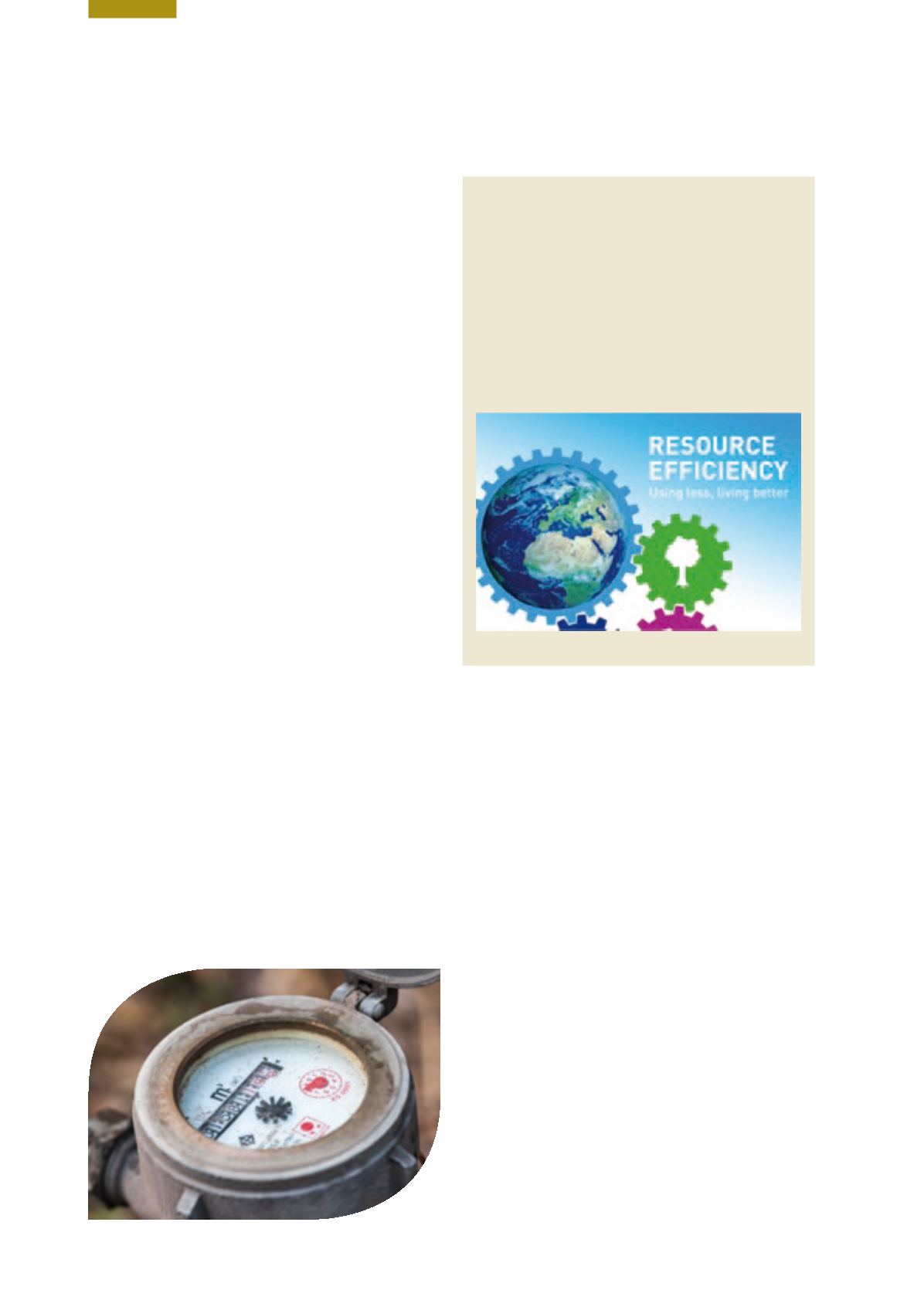

Ireland’s Environment – An Assessment 2016
152
environment, notably in the areas of fossil fuels, transport
and water, are worth €1 trillion per year. Environmentally
harmful subsidies lead to higher levels of waste, polluting
emissions (including climate change gases), inefficient
resource extraction and negative impacts on biodiversity.
They can lock in inefficient practices and hinder businesses
from investing in green (more sustainable) technologies.
The EU roadmap notes that environmental externalities are
not always reflected in the price of goods and services and
advocates that new policies should aim to correct prices
of resources and natural capital that are considered not
appropriately valued on the market, such as water, clean
air, ecosystems, biodiversity and marine resources. The EU
Commission sees environmental taxation as an essential
market mechanism to address any pricing market failures.
Environmentally harmful subsidies through for example,
investment write-off or other relief, can lead to long term lock-
in in relation to unsustainable technologies. Moreover, vested
interests – generally those with most to lose or gain – will
invest in lobbying to protect their particular sectoral or group
interests which may not be aligned to the public interest.
Elimination of environmentally harmful subsidies
and taxation systems will come into stronger focus
internationally and in national economic and finance
policy in the coming years. The State on its own, or as a
consequence of European action, will need to undertake
a review of environmentally harmful subsidies that may
be operating within its finance/taxation system and set
about eliminating them; examples include subsided peat
extraction, low CO
2
vehicle tax (causing rise in diesel use
and particulate air emissions) and green diesel VAT relief.
There has been little work on this area of policy conflict
to date and it is not clear whether regulatory impact
assessments for new legislative policy adequately address
such externalities.
It should be noted that Ireland has achieved considerable
behavioural change success in relation to employing taxation
based measures to address certain environmental harms,
e.g. the plastic bag tax, the landfill levy, and the carbon tax.
A Roadmap to a Resource Efficient Europe
(2011)
presents a policy ambition milestone that states:
“By 2020, market and policy incentives that reward
business investments in efficiency are in place.
These incentives have stimulated new innovations in
resource efficient production methods that are widely
used. All companies, and their investors, can measure
and benchmark their lifecycle resource efficiency.
Economic growth and wellbeing is decoupled from
resource inputs and come primarily from increases in
the value of products and associated services.”
(Source: EEA)
Raw Material Use in the Economy
Securing a sustainable supply of raw materials for the
EU, and nationally, is a key priority.
In late 2013, the European Commission established the
EU Raw Materials Initiative with a view to securing a
sustainable supply of raw materials for the EU as a key
priority. Raw materials, such as metals and minerals or
forest-based materials, are essential to the EU’s economy,
growth and competitiveness. The EU reports that more
than 30 million jobs and many key economic sectors,
such as automotive, aerospace and renewable energy,
are dependent on a sustainable supply of raw materials.
The associated strategy has three stated aims, which are
to ensure the following:
n
fair and sustainable supply of raw materials from
global markets
n
sustainable supply of raw materials within the EU
n
resource efficiency and supply of secondary raw
materials through recycling.
The EU subsequently published an assessment of
raw materials deemed critical to the EU economy
(EC, 2011). The EPA, through its national environmental
research programme, is funding projects that aim to
advance knowledge and innovation in the critical raw
materials area.


















